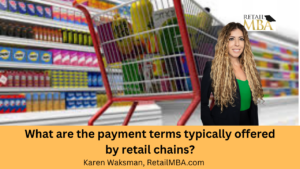Retail EDI

Retail Electronic Data Interchange
Retailers rely on EDI to optimize their supply chains and gain an edge in the marketplace. Learn how we assist retailers like The Good Guys connect with suppliers while eliminating costly human errors.
EDI allows businesses to exchange data and documents such as purchase orders and invoices electronically instead of via paper or fax, thus helping reduce shipping mistakes, out of stock issues and accounts payable delays.
Streamlined Ordering Process
Retail EDI helps streamline order fulfillment by automating the exchange of standard electronic documents between retailers and suppliers – this eliminates manual processes like faxing and phone calls while speeding up overall time to delivery.
For instance, in the past when retailers wanted to place an order of, say 100 pairs of shoes from their supplier, they would need to fax or phone in an order form which contained every detail such as shoe sizes, colors and quantity. When using EDI this process is automatic with documents being automatically sent and received simultaneously by both parties and understood easily – eliminating human errors while making ordering more efficient overall.
EDI helps streamline the ordering process for small businesses by making it simpler to connect with wholesale distributors. Many ecommerce stores don’t own warehouses of their own; therefore, finding suppliers who can meet all their inventory and shipping needs requires finding partners who use EDI and guarantee timely orders delivery.
Once orders have been processed by their suppliers and sent back to retailers, retailers will receive an acknowledgment document (EDI 855) as confirmation that the orders have been received. Next step should be sending the retailer an advance shipping notice (EDI 856) informing them that shipment has begun and bill of lading (EDI 810) with invoice details such as ship-from warehouse location, product description quantity billing information payment terms etc.
EDI makes it easy for retailers to evaluate the performance of their vendors. For instance, retailers can utilize EDI communication with DSD suppliers in order to track inventory and sales data. By keeping an eye on vendor performance, retailers can ensure they’re working with top-quality providers who offer exceptional products and services; meeting customer expectations while upholding their company brand and reputation are both key elements in success in today’s competitive marketplace.
Inventory Transparency
As the retail industry develops, transparency demands have grown steadily. Consumers increasingly expect the best prices, transparent product data, and seamless shopping experiences; retailers must prioritize supply chain visibility, control and flexibility as part of meeting these consumer expectations. Electronic data interchange (EDI) remains one of the key tools in keeping up with this rising demand for transparency in retailing.
EDI allows retailers to exchange business documents digitally using a standard, secure communication method – eliminating manual processing, reducing errors and improving supply chain communications in a seamless fashion.
Edi provides both ease and transparency into inventory processes. When retailers place an order with suppliers, their system checks to see if there is enough stock stored to fulfill it – if that is indeed the case, EDI documents confirm this information, giving retailers unparalleled insight into inventory processes that would otherwise remain hidden behind physical documents.
Retailers that rely on drop shipping – which involves sending customer orders directly to manufacturers for fulfillment – have found that using EDI makes inventory management much faster and saves both time and money in terms of manual updating of inventory quantities in each system. It saves both parties valuable time.
Edi can also help retailers identify which suppliers are performing well and which ones aren’t; this insight would take months with paper documents alone. Armed with this data, retailers can make changes to their purchasing processes if certain vendors don’t offer what they require.
EDI solutions also enable retailers to maintain their competitive edge by offering customers special pricing for certain items. By setting rules within an EDI solution, retailers can set prices automatically update to prevent overselling while matching competitor pricing levels and maintaining margins.
Real-Time Data
Large retailers and suppliers need a solution that offers reliable and accurate transmission of large amounts of data quickly. EDI allows this by offering a standard protocol for transmitting documents such as purchase orders, invoices and dispatch advices.
This enables more insightful data analysis that leads to enhanced inventory management and production forecasting – ultimately leading to greater savings for both brands and distributors over time.
Retail EDI solutions also allow retailers to use drop shipping, which reduces inventory levels significantly while saving space, lowering risks of lost or damaged items and expediting orders more quickly for customers. A robust EDI system with real-time processing capability can make this possible.
Retail EDI technology has long been an integral component of retail supply chains, yet there remains much room for further optimization and data integration within this sector. Indeed, APIs’ rising popularity may suggest that some aspects of EDI may have reached their maximum development level and require updating or replacement in favor of something entirely different.
Apis don’t always represent an either/or choice: APIs provide many benefits such as scalability and customization options, yet can also be utilized alongside traditional EDI systems to form a balanced data integration framework for retailers. With this hybrid approach in place, retailers can optimize both their EDI and API strategies according to use cases and partner interactions.
Retailers that partner with high-profile vendors who use an EDI system will likely insist that all smaller partners use one too – this ensures all parties can exchange data efficiently without delays or errors, and is especially advantageous during seasonal spikes when orders must be processed quickly.
Retailers with visibility into product trends can quickly recognize which suppliers are excelling and which need improvement, an insight that would have taken months otherwise to uncover without EDI.
Increased Flexibility
EDI allows retailers and suppliers to connect on an efficient platform that eliminates language barriers while streamlining collaboration, while simultaneously eliminating errors. Our streamlined approach to retail EDI makes communication between furnishing businesses and their customers and suppliers simpler while our team manages compliance with regulations while streamlining business transactions; plus it can help attract larger retailers who require strict adherence to regulatory guidelines.
By employing Electronic Data Interchange (EDI), your staff can spend less time entering data and more time improving customer experiences. Instead of fighting with suppliers over incorrect shipments that were ordered incorrectly, your team can focus on better serving their clients – this also saves money on supplies like toner and paper!
EDI also reduces the time it takes for you to receive invoices and other essential documents from suppliers, freeing up staff to process other tasks in the office, increasing productivity while simultaneously cutting expenses – giving your business more profitability while upholding its reputation.
Edi for retail can offer retailers many advantages, one being its ability to quickly and easily adapt your ordering processes based on customer demand, helping you adapt quickly to market shifts while remaining competitive in furniture industry.
Retail EDI can also help your store avoid out-of-stock situations by speeding up order fulfillment processes. Your supplier will send an EDI document indicating their items are on their way, automatically updating inventory counts in your point of sale system without you needing to manually check on hand inventory counts – thus decreasing overselling or underselling risks.
EDI makes it easier to keep track of inventory and sales, giving you accurate forecasting capabilities and informed decision-making ability. This enables you to increase profit margins or adjust inventory depending on market demand, increasing profitability while taking advantage of opportunities in the furniture industry.
Step-by-step training on how to sell to retail chains!
We explain exactly how to do that and how to get started today. I’ve taught over 100,000 of companies over the years across the globe on how to get your products to the stores. And so we’re here to support you. Or please subscribe to our Youtube channel and or be on the lookout for additional training that we create.
We are here to expedite the process of generating revenue with your physical products and that’s what we’re all about. Take a look at our advanced training, live events, certification programs and so much more.
In this training, I will discuss some of the things to think about when approaching a retailer to sell your products and become a vendor. Hope it helps! 🙂
Karen Waksman,
Retail MBA
Questions? Contact Us!
1-855-Retail-2 (Call or Text)
Email: info@retailmba.com
Retail MBA provides a step-by-step formula on How to Sell to Major Retailers, Online Retailers, Smaller Retailers, Catalogs and More. No Experience Required! These solutions continue to convert for clients year-over-year! These are Time-Tested and Proven Strategies that we utilize ourselves when going after stores! Everything we teach, we test. Want access to these formulas? ANY one of our programs and coaching systems gives you access to them now. With that said…
Here are 5 Easy Ways to Work with Us:
1) Free Training – If You Would Like to Join Our Next FREE Webinar Training Called “Retail Chain Store Secrets – How to Sell to Major Retail Chains. No Experience Required” Then Sign Up NOW To Learn All About Selling into Retail Chains By Clicking Here!
2) Retail MBA Year Long Coaching and Training System – Our Year Long Coaching and Training System with Karen Waksman is POWERFUL! This is our most popular training and coaching system! We walk you through how to approach, pitch and sell to retail chains and we coach you along the way! Join us by Clicking Here!
3) Masterclass Intensives – Want to Join our Next 4 Week Elite Retail MBA Masterclass Intensive? These Intensives Are EPIC for people who Love Fast Paced Learning – Homework, Retail Coaching, Developing Your Strategy, Buyers Contacts and More! These Events Are Held Every Quarter. Join us by Clicking Here!
4) Done-for-You Program – If You Want Karen Waksman and Her Team to Reach Out to Your Top Dream Retail Chains On Your Behalf – And You Have a Retail-Ready Product, Check Out our Epic Done-For-You Service by Clicking Here!
5) In Person Events – If You Want to Learn LIVE and Meet Karen Waksman in Person at Our Next “America’s Next Retail Product: LIVE Event with Other Like-Minded Individuals in Beautiful San Diego, CA! We Would LOVE to Have You Join Us by Clicking Here!

Check Out Our Additional Blog Posts Here:

Retail Terms
Retail Terms – What are the payment terms typically offered by retail chains? Click Here to Learn More!

Retail Vendor
Retail Vendor – What are the common mistakes to avoid when selling to retail chains? Click Here to Learn More!

How to Sell Your Holiday Products to Retail Chains
New Training on How to Sell Your Holiday Products to Retail Chains


Ulta Beauty Vendor
Ulta Beauty Vendor – How to Sell to Ulta Beauty Stores. Click Here to Learn More!

Retail Strategy
Retail Strategy – How do I handle negotiations with retail chains? Click Here to Learn More!

